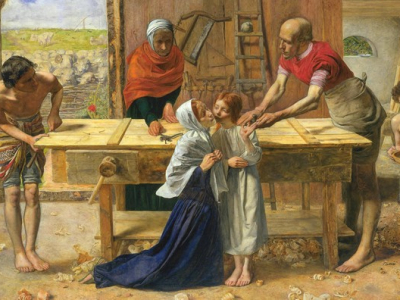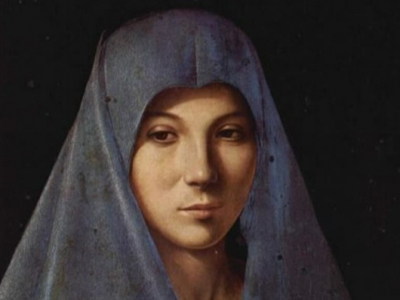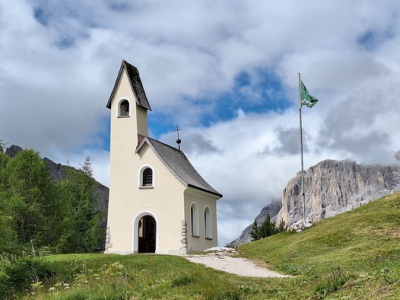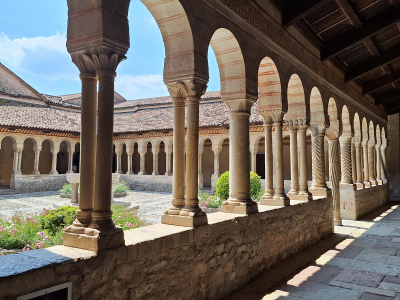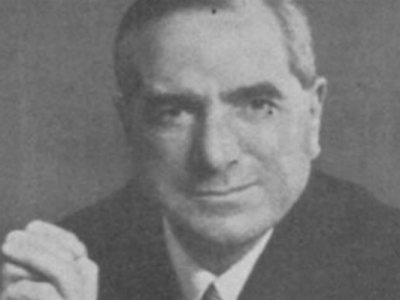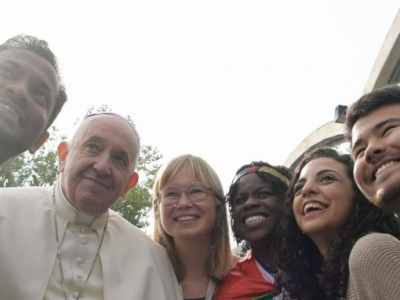stdClass Object
(
[id] => 20544
[title] => The duty to immerse ourselves in our time
[alias] => the-duty-to-immerse-ourselves-in-our-time
[introtext] => Editorials - Christianity is the humanism of waiting, waiting for the unknown, for the One who promised he would return. We cannot afford to live in the memory of “better times.”
by Luigino Bruni
published in Avvenire on 12/31/2025
"His was a different, particular conception of time, the kind that makes you say, ‘In my day!’. Isn't this our time? ... There is nothing worse than being the stepchildren of our own time. There is no worse fate than living in a time that is not our own. You recognize them immediately: in personnel offices, in party committees, in the political sections of the army, in newspaper offices, on the street. Time loves only those it has created; it loves its own children."
[fulltext] =>
These are the words of Vasily Grossman, in Life and Fate, one of the masterpiece novels of the 20th century. A meditation on time that is particularly appropriate on this December 31, when kronos time invites us to reflect on kairos time, on the meaning of a time that truly ends while another time continues, truly, as always. The temptation to be stepchildren of time is particularly strong and effective during difficult times, even more so for those who have known good times in the past, and so the attraction of the illusion of taking refuge in the country of yesterday, which no longer exists but still promises us some small consolation, becomes strong. Today, Catholics, but also those who believed in the great social and political narratives of the twentieth century, are particularly captivated by the temptation to say and live ‘in my day!’; and thus condemn themselves to living out of step, out of time, as veterans, as guests. They take refuge in the families of yesterday, in those crowded churches, in an environment reminiscent of ‘the best years of our lives’, and thus forget that the only ‘best years of our lives’ are those we have here and now, that the only best day is today: the rest is vanitas, wind, illusion, even though they are all human things.
Of this year 2025, many wars remain, some hope for peace, a land that suffers more and more, and we with it. What remains is the Jubilee, which was a special time for many Catholics. But, now that it has come to an end, we can also say that it was an opportunity only partially exploited, if we compare what we experienced with the biblical meaning of the jubilee, namely the liberation of slaves, the cancellation of debts, rest, and the restitution of land. We have seen few slaves freed, even fewer debts (public and private) forgiven, and the land on this December 31st is breathing less than it already did on January 1st. The biblical jubilee has economic, political, and social dimensions that are fundamental to the many crises of our time, collective dimensions that have remained very much in the background of our jubilee, which has focused more on worship and individual acts.
What remains of this year, then, are the last months of Pope Francis, his prophecy, his death, and the arrival of Pope Leo. What remains are the powerful final words prepared by Francis for Easter, which he was unable to read personally, and which thus became his testament: “No peace is possible without true disarmament! The need for every people to provide for its own defense cannot be transformed into a general arms race”; and then he continued: " I appeal to all those in the world who have political responsibility not to give in to the logic of fear that closes, but to use the resources available to help the needy, fight hunger, and promote initiatives that foster development. These are the ‘weapons’ of peace." Europe, the US, and much of the world have gone in the opposite direction (rearmament) to that desired by Francis (disarmament). Those same world leaders who gathered, perhaps sincerely, to honor the pope on the day of his funeral, then approved billions in new military spending, thus betraying his last will and testament. They have become “administrators of fear” rather than the “entrepreneurs of dreams” that Francis proposed to the young people of Lisbon in 2023. And when good dreams are lacking, the administrators of fears sooner or later turn into managers of collective nightmares.
In his 1940 novel The Desert of the Tartars, written during a time of war in Europe, Dino Buzzati tells the story of Second Lieutenant Giovanni Drogo, who spends his entire life in the “Bastiani Fortress” on the far reaches of the empire. A life spent with his soldiers waiting for an enemy that was supposed to arrive. Many years pass, but there is no sign of the enemy. The soldiers were fueled by the hope of seeing enemy troops appear on the desert horizon at any moment, thus restoring new splendor and political centrality to the Bastiani Fortress, which had a glorious past but had now fallen into decline due to a lack of enemies and wars.
It is not difficult to see in the Bastiani Fortress today's Europe, an ancient decayed castle, whose soldiers prepare and rearm themselves in anticipation of an enemy who, they hope, will arrive sooner or later. But in Buzzati's novel, one day a soldier (Giuseppe Lazzari), returning from patrol, fails to give the password and is killed by the sentry, who followed the rules of the fortress even though he recognized him. In that useless fortress, with nothing serious to do, a real neurosis had developed around the formal and complicated rules on the ‘password’, as is almost always the case in useless institutions. And so, waiting for a war that never came from outside, those frustrated soldiers began to kill each other. A literary prophecy that speaks to us today, and should speak to us a great deal. In the Roman world, the beginning of the new year was under the protection of Janus, the two-faced god, the Italic deity of beginnings and transitions (iauna: door), the father of all mornings. That distant world knew that the new is deeply inscribed in the old, hence the two-faced character of the deity. What begins is the continuation of what has just been. Yet men and women in every beginning hope for something better, that what has not yet happened will finally happen. These wishes are a mixture of illusion and hope, like life itself—a good mixture. Christianity made January 1 a feast day of Mary, the ianua coeli, to place the beginning of the new time under her benevolent gaze. Christianity is the humanism of waiting, waiting for the unknown, for the One who promised he would return. Happy 2026: best wishes for living it as sons and daughters of our time.
[checked_out] => 0
[checked_out_time] => 0000-00-00 00:00:00
[catid] => 888
[created] => 2025-12-31 10:52:55
[created_by] => 64
[created_by_alias] => Luigino Bruni
[state] => 1
[modified] => 2026-01-13 09:32:40
[modified_by] => 64
[modified_by_name] => Antonella Ferrucci
[publish_up] => 2025-12-31 10:59:41
[publish_down] => 0000-00-00 00:00:00
[images] => {"image_intro":"","float_intro":"","image_intro_alt":"","image_intro_caption":"","image_fulltext":"","float_fulltext":"","image_fulltext_alt":"","image_fulltext_caption":""}
[urls] => {"urla":false,"urlatext":"","targeta":"","urlb":false,"urlbtext":"","targetb":"","urlc":false,"urlctext":"","targetc":""}
[attribs] => {"article_layout":"","show_title":"","link_titles":"","show_tags":"","show_intro":"","info_block_position":"","info_block_show_title":"","show_category":"","link_category":"","show_parent_category":"","link_parent_category":"","show_associations":"","show_author":"","link_author":"","show_create_date":"","show_modify_date":"","show_publish_date":"","show_item_navigation":"","show_icons":"","show_print_icon":"","show_email_icon":"","show_vote":"","show_hits":"","show_noauth":"","urls_position":"","alternative_readmore":"","article_page_title":"","show_publishing_options":"","show_article_options":"","show_urls_images_backend":"","show_urls_images_frontend":"","helix_ultimate_image":"images\/2025\/12\/31\/Foglia_fine_anno_ant_2.jpg","helix_ultimate_image_alt_txt":"","spfeatured_image":"images\/2025\/12\/31\/Foglia_fine_anno_ant_2.jpg","helix_ultimate_article_format":"standard","helix_ultimate_audio":"","helix_ultimate_gallery":"","helix_ultimate_video":"","video":""}
[metadata] => {"robots":"","author":"","rights":"","xreference":""}
[metakey] =>
[metadesc] =>
[access] => 1
[hits] => 164
[xreference] =>
[featured] => 1
[language] => en-GB
[on_img_default] => 0
[readmore] => 5918
[ordering] => 0
[category_title] => EN - Avvenire Editorials
[category_route] => economia-civile/it-editoriali-vari/it-varie-editoriali-avvenire
[category_access] => 1
[category_alias] => en-avvenire-editorial
[published] => 1
[parents_published] => 1
[lft] => 79
[author] => Luigino Bruni
[author_email] => ferrucci.anto@gmail.com
[parent_title] => IT - Editoriali vari
[parent_id] => 893
[parent_route] => economia-civile/it-editoriali-vari
[parent_alias] => it-editoriali-vari
[rating] => 0
[rating_count] => 0
[alternative_readmore] =>
[layout] =>
[params] => Joomla\Registry\Registry Object
(
[data:protected] => stdClass Object
(
[article_layout] => _:default
[show_title] => 1
[link_titles] => 1
[show_intro] => 1
[info_block_position] => 0
[info_block_show_title] => 1
[show_category] => 1
[link_category] => 1
[show_parent_category] => 1
[link_parent_category] => 1
[show_associations] => 0
[flags] => 1
[show_author] => 0
[link_author] => 0
[show_create_date] => 1
[show_modify_date] => 0
[show_publish_date] => 1
[show_item_navigation] => 1
[show_vote] => 0
[show_readmore] => 0
[show_readmore_title] => 0
[readmore_limit] => 100
[show_tags] => 1
[show_icons] => 1
[show_print_icon] => 1
[show_email_icon] => 1
[show_hits] => 0
[record_hits] => 1
[show_noauth] => 0
[urls_position] => 1
[captcha] =>
[show_publishing_options] => 1
[show_article_options] => 1
[save_history] => 1
[history_limit] => 10
[show_urls_images_frontend] => 0
[show_urls_images_backend] => 1
[targeta] => 0
[targetb] => 0
[targetc] => 0
[float_intro] => left
[float_fulltext] => left
[category_layout] => _:blog
[show_category_heading_title_text] => 0
[show_category_title] => 0
[show_description] => 0
[show_description_image] => 0
[maxLevel] => 0
[show_empty_categories] => 0
[show_no_articles] => 1
[show_subcat_desc] => 0
[show_cat_num_articles] => 0
[show_cat_tags] => 1
[show_base_description] => 1
[maxLevelcat] => -1
[show_empty_categories_cat] => 0
[show_subcat_desc_cat] => 0
[show_cat_num_articles_cat] => 0
[num_leading_articles] => 0
[num_intro_articles] => 14
[num_columns] => 2
[num_links] => 0
[multi_column_order] => 1
[show_subcategory_content] => -1
[show_pagination_limit] => 1
[filter_field] => hide
[show_headings] => 1
[list_show_date] => 0
[date_format] =>
[list_show_hits] => 1
[list_show_author] => 1
[list_show_votes] => 0
[list_show_ratings] => 0
[orderby_pri] => none
[orderby_sec] => rdate
[order_date] => published
[show_pagination] => 2
[show_pagination_results] => 1
[show_featured] => show
[show_feed_link] => 1
[feed_summary] => 0
[feed_show_readmore] => 0
[sef_advanced] => 1
[sef_ids] => 1
[custom_fields_enable] => 1
[show_page_heading] => 0
[layout_type] => blog
[menu_text] => 1
[menu_show] => 1
[secure] => 0
[helixultimatemenulayout] => {"width":600,"menualign":"right","megamenu":0,"showtitle":1,"faicon":"","customclass":"","dropdown":"right","badge":"","badge_position":"","badge_bg_color":"","badge_text_color":"","layout":[]}
[helixultimate_enable_page_title] => 1
[helixultimate_page_title_alt] => Avvenire Editorials
[helixultimate_page_subtitle] => Civil Economy
[helixultimate_page_title_heading] => h2
[page_title] => Avvenire Editorials
[page_description] =>
[page_rights] =>
[robots] =>
[access-view] => 1
)
[initialized:protected] => 1
[separator] => .
)
[displayDate] => 2025-12-31 10:52:55
[tags] => Joomla\CMS\Helper\TagsHelper Object
(
[tagsChanged:protected] =>
[replaceTags:protected] =>
[typeAlias] =>
[itemTags] => Array
(
)
)
[slug] => 20544:the-duty-to-immerse-ourselves-in-our-time
[parent_slug] => 893:it-editoriali-vari
[catslug] => 888:en-avvenire-editorial
[event] => stdClass Object
(
[afterDisplayTitle] =>
[beforeDisplayContent] =>
[afterDisplayContent] =>
)
[text] => Editorials - Christianity is the humanism of waiting, waiting for the unknown, for the One who promised he would return. We cannot afford to live in the memory of “better times.”
by Luigino Bruni
published in Avvenire on 12/31/2025
"His was a different, particular conception of time, the kind that makes you say, ‘In my day!’. Isn't this our time? ... There is nothing worse than being the stepchildren of our own time. There is no worse fate than living in a time that is not our own. You recognize them immediately: in personnel offices, in party committees, in the political sections of the army, in newspaper offices, on the street. Time loves only those it has created; it loves its own children."
[jcfields] => Array
(
)
[type] => intro
[oddeven] => item-odd
)







